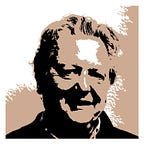At 60, the future of Europe is a blank page
History repeats itself. Sixty years ago, the founding fathers of Europe signed in Rome the Treaty which created the European Economic Community (EEC), the ancestor of today’s European Union (EU); But who remembers that they actually signed blank pages as they were late in printing the actual Treaty.
This saturday, it’s not six but 28 countries which gather in the Italian capital to commemorate the event, but also to wonder what should be written on the (really) blank pages of Europe’s next decades. The Europe that meets this weekend in Rome is in the midst of an existential crisis and has to rethink its future.
The words « crisis » and « Europe » are in fact linked since day one. Contrary to what could be expected, the signing of the Rome Treaty was not greeted by joyful people in the streets of the continent’s towns and villages… Started with coal and steel, the two main causes of numerous wars between France and Germany, the EEC was the fruit of the will of a few men marked by the Second World War, facing deep skepticism and even opposition from many in their own lands.
« An empirical Europe » was born, as the French Daily Le Monde titled its editorial that day; « empirical », as with any idea borne out of experience and not from an established plan. This allowed the development of what Jacques Delors, one of the Brussels executive Presidents, named a « unidentified political object ». Until it stopped functioning.
For at least a decade, in fact since French voters said « no » to a proposed European constitution in a referendum in 2005, the European process have been in crisis.
Is there a pilot ?…
It’s hard to imagine a worse context for this anniversary, with the United Kingdom ready to launch, four days later, the Brexit countdown, a US administration hostile to the mere idea of a united Europe, a rise in populism and Euroscepticism in many countries, including two governments in Poland and Hungary, a slow economic growth, and endless Greek debt crisis, disunity over the issue of migrants and refugees, conflicts at the continent’s borders (Ukraine, Syria…). The list is long and impressive, with no visible pilot in the European ship.
One could indeed hope for a better anniversary mood, particularly as some of the key participants are in a fragile condition. François Hollande of France will be out of office in just a few weeks, German Chancellor Angela Merkel is facing general elections in September, and the Italian host, Paolo Gentiloni, is only a survivor. As for the United Kingdom, i twill be discreet before leaving the house…
Despite this, those who don’t accept the idea of shutting the light, knowing that it would mean a perilous regression, find some signs of encouragement.
The result of the Dutch elections, last week, showed that the populist wave is not unstoppable, even if the non-victory of the forceful anti-EU and anti-Islam Geert Wilders doesn’t mean his ideas are not growing.
The next step will obviously be the French presidential vote on April 23 and May 7, in which the biggest dividing line will no longer be right versus left, but an open Europe versus a narrow national vision.
Marine Le Pen, the Far-Right candidate, names it « Patriots » -meaning herself- versus « Globalists », targeting Emmanuel Macron, the centrist former banker turned politician who is her leading opponent. These key-words are part of the populist vocabulary and aimed at giving her the best role.
But one could also describe it as a clash between a guaranteed decline and a gamble on the future. There is an obvious part of risk in the hope of a European relaunch, as these have been disappointing and frustrating over the years, particularly in the current European environment. But the only alternative presented by the National Front candidate is that of taking France out of the Eurozone, a costly process doubled by re-imposed border controls that would bring the country back several years if not decades.
Alignment of planets
Countering the language of fear of Ms. Le Pen depends a lot on an exceptional alignment of planets, if, after the forthcoming French and German elections, there is a strong and determined pro-European leadership in both countries. It is a necessary, if not sufficient, condition, as nothing happens in Europe without France and Germany together.
A clear signal already comes from Germany, as both contenders for victory in September, Christian-democrat Angela Merkel and Social-democrat Martin Schultz, are strong pro-Europeans, and welcomed Emmanuel Macron in Berlin, hinting that he is their preferred candidate to win in France.
Woldgang Ischinger, one of the most authoritative German diplomatic voices, President of the Munich Security Conference, predicted on CNN a few days ago that Europe’s face would have changed by the end of the year, after France and Germany’s elections, and that both countries would lead a European relaunch. It is not indifferent that such a message would be given on a US-based TV channel, even one that is described as « Fake News » by Donald Trump…
This is not yet very clear in the French campaign, and the topic was only briefly touched upon on Monday, in the first TV debate between the five top candidates of the first round. But it will most likely emerge as the subject on which French voters will have to make a key choice, more than retirement age or economic issues.
If, as opinion polls predict, the second round will oppose Marine Le Pen to Emmanuel Macron, this will be their battlefield. And the rest of Europe will listen as its future will also be at stake on May 7 in French polling stations, allowing leaders to fill the blank pages of the Rome summit.
Pierre Haski
